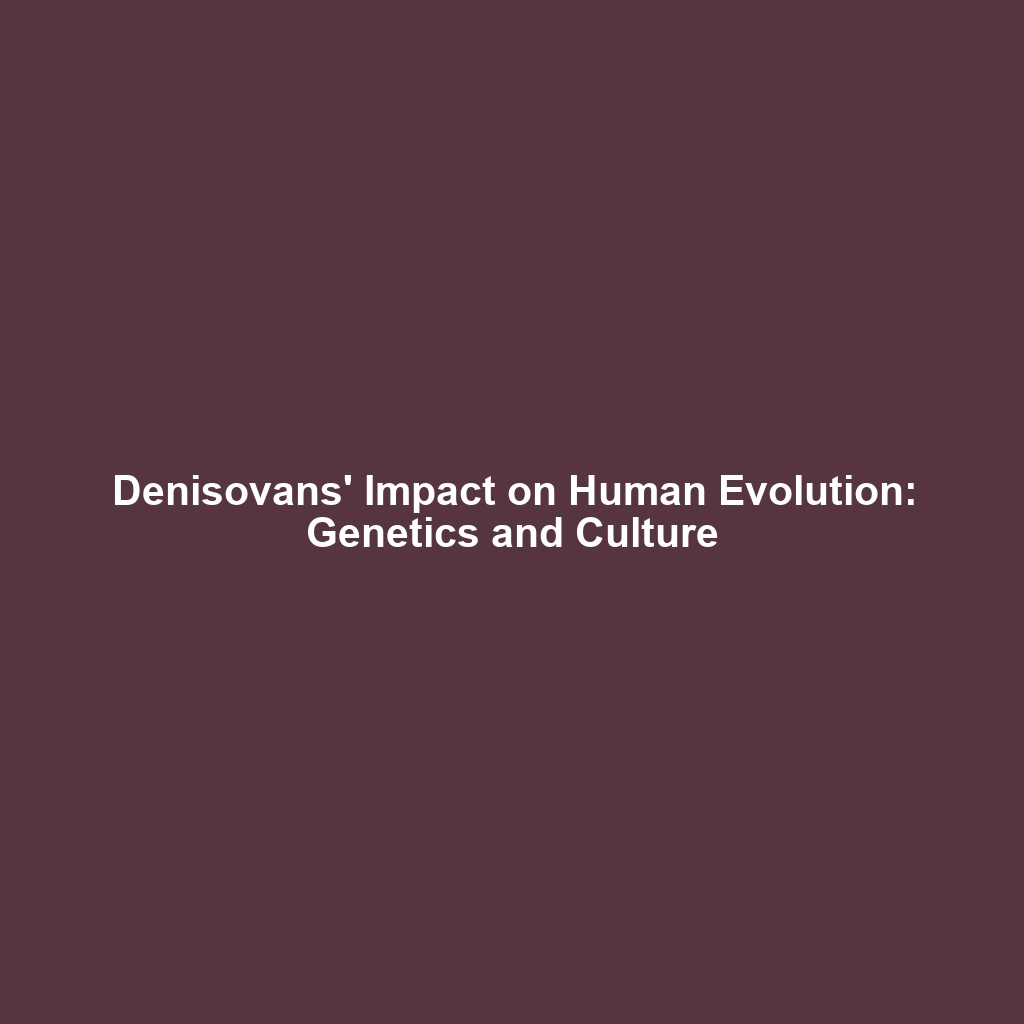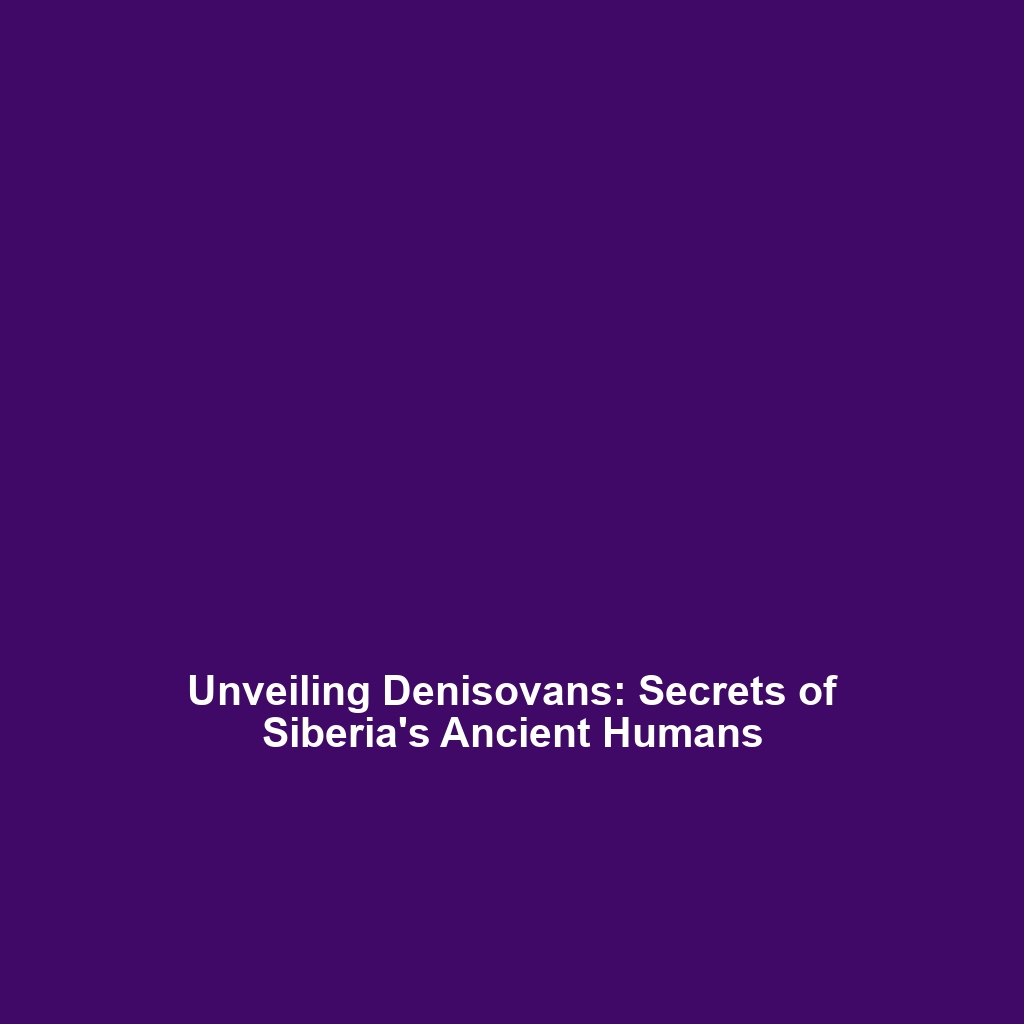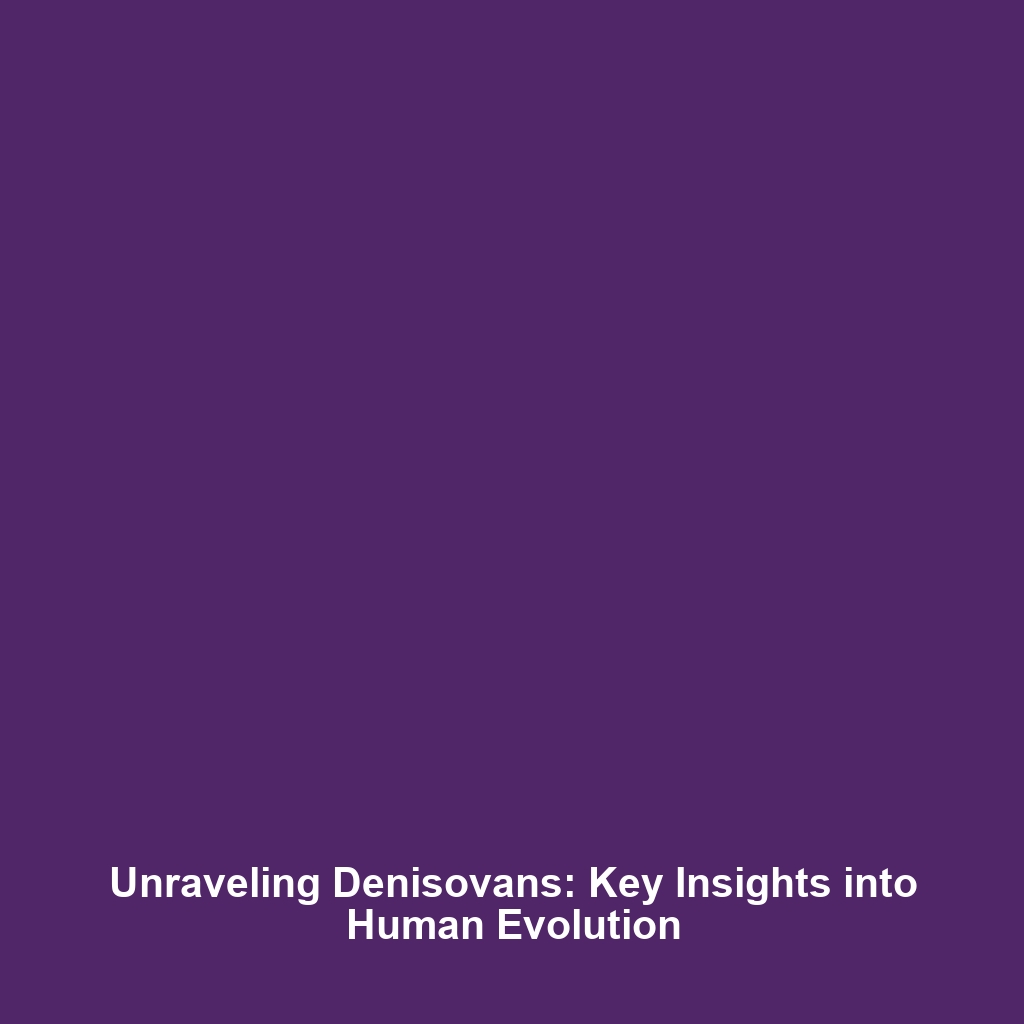Impact on Human Evolution: The Role of Denisovans in Genetic and Cultural Evolution
Introduction
The Denisovans, an ancient group of hominins, significantly impacted human evolution, providing critical insights into the genetic and cultural dynamics of early human populations. Understanding the role of Denisovans is essential in the broader context of human evolution as they contributed to the genetic diversity found in modern human populations today. This article explores how Denisovans influenced both genetic makeup and cultural practices, shaping the course of human history.
Key Concepts
The Denisovans and Their Discovery
Denisovans, discovered from remains found in the Denisova Cave in Siberia, represent a group closely related to Neanderthals, having coexisted and interbred with early humans. Their genetic contributions are evident in various modern populations, particularly in regions such as Melanesia.
Genetic Contributions
Research indicates that Denisovans contributed significant genetic material to modern humans. Their DNA has been linked to traits such as adaptation to high altitudes among Tibetan populations, showcasing how genetic evolution is intertwined with environmental adaptation.
Cultural Evolution
Beyond genetics, the Denisovans may have played a role in the cultural evolution of early human groups. The exchange of tools, art, and potentially language forms a critical area of research in understanding how these interactions influenced early human societies.
Applications and Real-World Uses
The study of Denisovans holds several real-world applications:
- Genetic Health: Understanding Denisovan genetics can help in comprehending current human diseases and health adaptations.
- Anthropological Insight: Insights into Denisovan culture can inform anthropological approaches to early human societies and their interactions.
- Genetic Engineering: Research inspired by Denisovan genetics may lead to developments in genetic engineering and biotechnology.
Current Challenges
Despite the advances in understanding Denisovans, several challenges persist:
- Limited fossil evidence restricts comprehensive knowledge about their lifestyle and culture.
- Interpretative challenges in DNA analysis lead to debates on the extent and impact of Denisovan interbreeding.
- Access issues regarding archaeological sites hinder ongoing research efforts.
Future Research and Innovations
The future of Denisovan research looks promising, with the following areas of focus:
- Next-Generation Sequencing: Innovations in sequencing technologies will provide deeper insights into Denisovan genetics.
- Interdisciplinary Approaches: Collaborative efforts between geneticists, anthropologists, and archaeologists promise to enhance understanding.
- Artificial Intelligence: AI and machine learning may be used to analyze complex genetic data for better insights into Denisovan influence.
Conclusion
In summary, the Denisovans have played a crucial role in the genetic and cultural evolution of early human populations, enriching the tapestry of human evolution. Continued research will not only uncover more about their contributions but will also enhance our understanding of modern human diversity and adaptation. For further reading, explore other topics on human evolution and genetic diversity.


